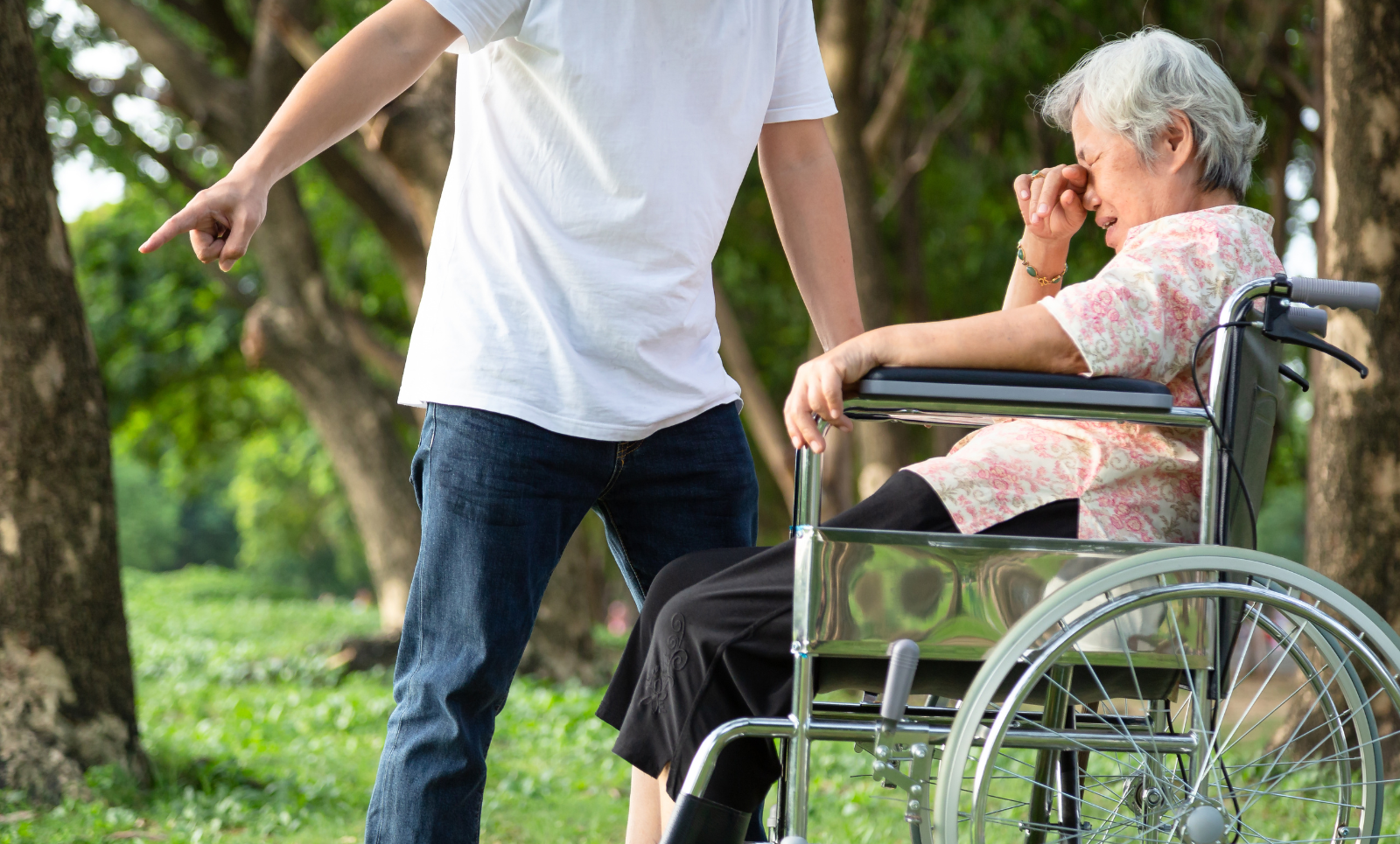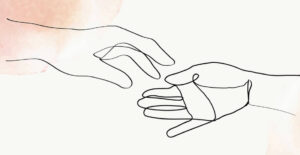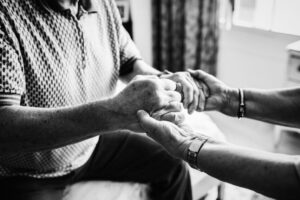
Playback speed:
Elder abuse is a growing concern in Singapore, with cases continuing to rise in recent years. In 2022, 370 elder abuse cases were reported, up from 338 in 2021 and 283 in 2020.1 One key factor is the overwhelming stress caregivers face, especially those caring for elderly persons with complex needs who depend on them for care.
As caregiving demands increase, caregivers may become physically and emotionally exhausted, which can sometimes lead to unintentional harm. Understanding the signs of abuse and knowing how to respond are crucial to protecting vulnerable groups such as persons living with dementia.
Read on to learn more about the types of abuse, how to recognise the signs, and what to do if you suspect abuse.
Types of Abuse
Abuse in dementia care refers to harm or mistreatment of persons living with dementia, and can take various forms:
1. Physical Abuse
This can include hitting, pushing, or restraining the person living with dementia.
2. Emotional Abuse
This can include verbal aggression, threats, intimidation, or isolating the person living with dementia from others, which can harm their emotional well–being.
3. Neglect and Self-Neglect
This can include failing to provide basic needs such as food, clothing, or medical care.
4. Financial Abuse
This can include stealing money or assets, coercing the person with dementia to sign over their assets or power of attorney.
5. Sexual Abuse
This can include unwanted touching or sexual acts.
Recognising Abuse in Dementia Care
Why Is It Crucial to Recognise Abuse?
Recognising and responding to abuse in dementia care is essential, as persons living with dementia are often unable to report abuse themselves. This is due to several factors:
Cognitive decline can make it difficult for persons living with dementia to recognise mistreatment. They may not have the awareness to identify abusive behaviour or might mistake it for part of their normal care routine.
Even if they are aware that something is wrong, persons living with dementia may struggle to communicate their feelings. Loss of language skills and cognitive challenges can prevent them from expressing their distress or seeking help.
Signs and Symptoms of Abuse
The following are common signs and symptoms that may indicate abuse:
- Unexplained injuries such as bruises, welts, or scars, especially if they appear symmetrically on both sides of the body.
- Broken bones, sprains, or dislocations.
- Reports of overdose or inconsistent medication usage.
- Broken glasses or frames.
- Marks from restraints, such as rope marks on wrists.
- The caregiver refusing to allow private visits with the person living with dementia.
- Threatening, belittling, or controlling behaviour by the caregiver.
- Sudden changes in behaviour, displaying feelings of unexplained fear or suspicion.
- Unusual weight loss, malnutrition, dehydration.
- Untreated physical problems, such as bed sores.
- Unsanitary living conditions: dirt, bugs, soiled bedding and clothes.
- Being left dirty or unbathed.
- Unsuitable clothing or covering for the weather.
- Unsafe living conditions (no heat or running water; faulty electrical wiring; other fire hazards).
- Desertion of the person living with dementia at a public place.
Persons living with dementia are particularly vulnerable to financial exploitation, especially those who live alone with limited family support.
- Significant withdrawals from the accounts of the person living with dementia.
- Sudden changes in the financial condition of the person living with dementia.
- Items or cash missing from the household of the person living with dementia.
- Suspicious changes in wills, power of attorney, titles, and policies.
- Financial activity the person living with dementia could not have undertaken, such as an ATM withdrawal when the account holder is bedridden.
- Unnecessary services, goods, or subscriptions showing up in the person’s bills.
- Bruises around the breasts or genitals.
- Unexplained vaginal or anal bleeding.
- Torn, stained, or bloodied underclothing.
Note: This section was adapted from HelpGuide: Elder Abuse and Neglect.
Risk Factors for Abuse in Dementia Care
Abuse can occur in any caregiving situation, but certain factors can increase the risk. Common risk factors include:
Dementia caregiving is demanding, and the stress can lead to frustration and, sometimes, abusive behaviours.
Caregivers and their loved ones may be isolated, with little support or outside help.
Pre-existing mental health conditions, such as depression or other diagnoses, can impact a caregiver’s ability to cope with stress, potentially contributing to abusive behaviours.
As dementia progresses, a person living with dementia may experience changes in behaviour, such as increased agitation or disinhibition. These changes can be challenging for caregivers, who may feel stressed or overwhelmed.
A history of domestic violence in the home increases the likelihood of abuse.
Responding to Abuse
If you suspect abuse, immediate action is essential to protect the person living with dementia. Here are a few steps you can take:
Ensure Immediate Safety
If the person living with dementia is in immediate danger, take steps to remove them from the situation and ensure their safety. If there is no immediate risk, monitor the situation closely and consult with relevant professionals, such as social workers or healthcare providers, to determine the best course of action.
Document and Gather Evidence
Document any signs of abuse, including physical injuries, changes in behaviour, or verbal reports. Keep detailed records of any incidents, as this will be important for reporting.
Report the Abuse
Report suspected abuse to the relevant authorities. In Singapore, contact the National Anti-Violence and Sexual Harassment (NAVH) Helpline at 1800-777-0000. This 24-hour helpline provides support and triages cases to the appropriate services. For non-life-threatening emergencies, you can also report abuse online via the NAVH Reporting Form on FormSG. You can also approach the Office of the Public Guardian (OPG), which provides support for safeguarding vulnerable adults at risk of abuse or exploitation.
If the situation presents an immediate danger to life or safety, contact the police immediately by dialling 999.
Follow-up and Support
Ensure the person living with dementia continues to receive appropriate care and support. Work with social workers, healthcare providers, or other professionals to address the situation and ensure their ongoing safety.
For more information on protecting vulnerable individuals under the law, you can refer to the Vulnerable Adult Act.
Conclusion
Abuse in dementia care affects more than just older adults. It can impact anyone experiencing cognitive decline, regardless of age. Persons living with dementia are particularly vulnerable, and any form of abuse can have devastating consequences on their physical and emotional well–being.
It is essential for professionals, caregivers, and the community to remain alert. By recognising the signs of abuse early, taking prompt action, and providing necessary support, we can help prevent abuse. In doing so, we can ensure that those living with dementia are treated with the respect, care, and protection they deserve.
Tell us how we can improve?
- Straits Times. (2023, May 31). Slight rise in elder abuse cases; caregiver stress is a common factor behind abuse. The Straits Times. Retrieved from https://www.straitstimes.com/singapore/slight-rise-in-elder-abuse-cases-caregiver-stress-is-a-common-factor-behind-abuse
- HelpGuide. (n.d.). Elder abuse and neglect: Recognising and responding to elder abuse. HelpGuide.org. Retrieved from https://www.helpguide.org/aging/healthy-aging/elder-abuse-and-neglect
- Ministry of Social and Family Development. (n.d.). Protecting the vulnerable. Office of Public Guardian. Retrieved from https://www.msf.gov.sg/what-we-do/opg/safeguards/protecting-the-vulnerable






